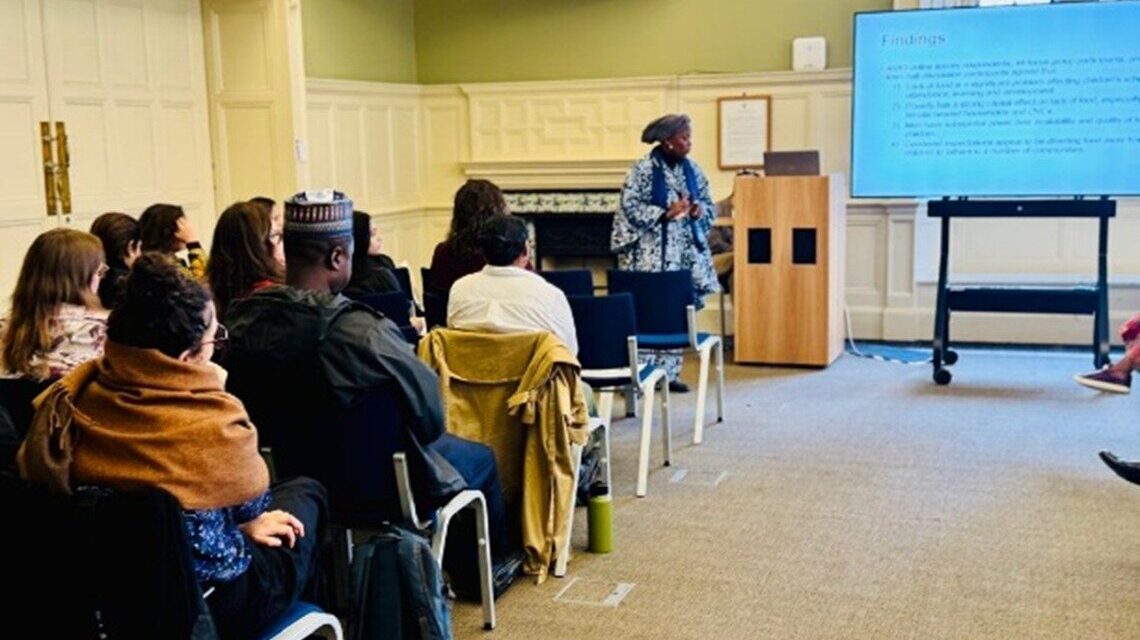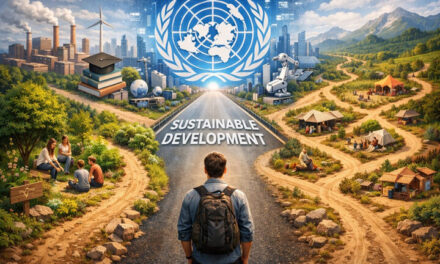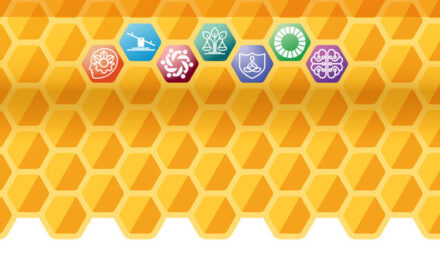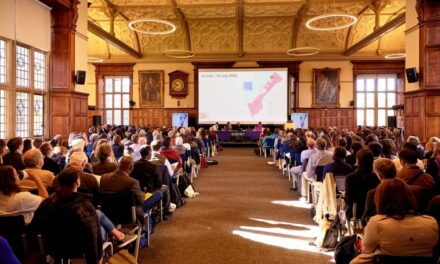This blog was written by Hadiza Umar, Hope for Communities and Children Initiative (H4CC). For the 2025 UKFIET conference, a record 37 individuals from 15 countries, including Hadiza, were provided with bursaries to assist them to participate and present at the conference. The researchers were asked to write a short piece about their research or experience of attending the conference.
In the face of shifting global priorities for education support, there is a need to showcase the relevance of education as a service delivery at the heart of interfacing with other sectors – such as health, human services, social development and access to justice, due to its being the fore bearer of empowerment.
The UKFIET 2025 conference has proven that education can and has brought the world together to speak a common language, endorse commitments to ensure education thrives and promote inclusion regardless of the “Monsters” hovering around to make it inaccessible to children.
Hope For Communities & Children (H4CC) is strengthening community capacity on positive parenting and making education accessible in the 23 Local Government Areas of Kaduna State, northern Nigeria by engaging with women and household heads on alternative education, breastfeeding and giving children high quality food, to support learning, safety and healthy development.
Thanks to the UKFIET bursary support and my co-author, Helen Pinnock, we got an opportunity to share our research findings from what was supposed to be a deep dive, but turned out to be action research that is now re-shaping how we are engaging across our programmes. Our research on, “Are gender norms around food weakening access to learning in Northern Nigeria?” is an eye-opener to the silent, but deeply entrenched challenges affecting learning opportunities for young children in our society.
Inclusion of the poorest children in education requires more insight into community expectations of fathers and household heads. Our presentation shared efforts to determine whether community mobilisation for early education should do more to challenge gendered parenting norms.
Sharing our findings with participants at Oxford, confirmed that other countries also share similar concerns and they identified with our findings. That was another source of triangulation for us. Listening to other presenters such as Hadiza Kere Abdulrahman, Joham Aziz from Pakistan, Rajalaxmi Singh from India, Save the Children, UNESCO and other presenters talking about inclusion and intersectionality resonated well with our new findings too.
Returning to Nigeria, I may have left Oxford and the conference behind, but I have taken along with me every word, finding, experience, reflection, resolution and commitment to strengthen my, and H4CCs determination to explore all acceptable strategies to push for the success of the SDG4 and beyond.
One word stood out. It was mentioned using different synonyms. The word is “Rethinking” – every participant (person or organisation) is rethinking and re-imagining how to move forward towards achieving the goal. The closing plenary capped it all discussing in-depth on “turning disruption into direction, and responsibility into opportunity”.
My take home is re-thinking and re-imagining how to turn the disruptions in our path into sustainable opportunities.




